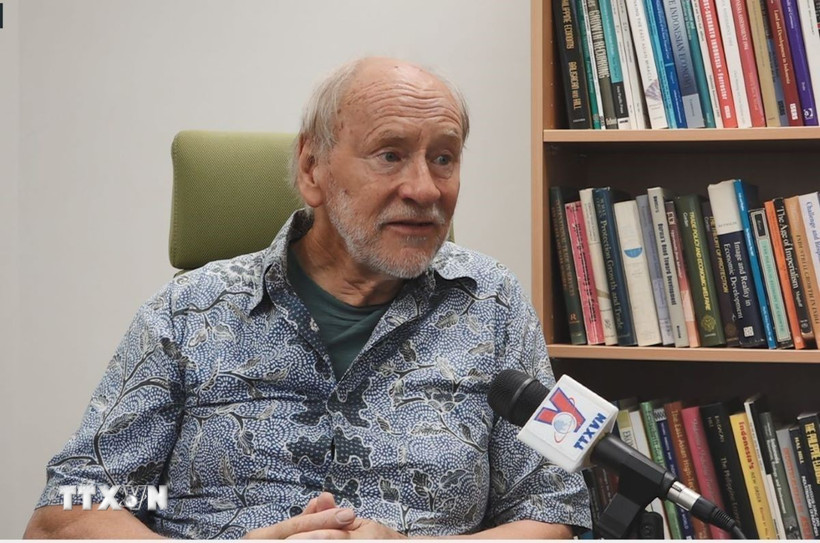
Professor Hal Hill of the Crawford School of Public Policy, Australian National University (ANU) in an interview with a VNA reporter in Australia. (Photo: Thanh Tu/VNA)
On the occasion of the 30th anniversary of Vietnam's accession to the Association of Southeast Asian Nations (ASEAN) (July 28, 1995 - July 28, 2025), Professor Hal Hill from the Crawford School of Public Policy, Australian National University (ANU), commented that Vietnam's accession to ASEAN is one of the most strategic and far-reaching developments in the region's modern history.
Professor Hill pointed out that three decades ago, Southeast Asia was a less developed region than it is today and Vietnam was still a poor country, just beginning to integrate into the international economic and political system after decades of war.
However, thanks to joining ASEAN, Vietnam had the opportunity to learn from neighboring countries, which at that time had higher economic openness, and gradually caught up with the regional globalization process.
Professor Hill emphasized that joining ASEAN has opened the door for Vietnam to learn and exchange, but more importantly, Vietnam knows how to combine the regional integration process with domestic reforms. He said that the Doi Moi process that began in 1986 is the foundation for Vietnam to effectively take advantage of the opportunities that ASEAN brings.
Vietnam has proactively promoted integration, improved the investment environment, expanded economic cooperation and built the image of a dynamic and responsible country in the region.
From a backward country, Vietnam has now risen to become the most dynamic economy in ASEAN in the 21st century.
30 years ago, no one imagined that Vietnam would surpass the Philippines in terms of per capita income. But today it has become a reality. He assessed that Vietnam is gradually approaching the group of upper-middle-income countries.
Analyzing Vietnam's role in ASEAN today, Professor Hill said there are three prominent factors.
First, Vietnam is large in population and area, creating natural influence in the region.
Second, Vietnam is the fastest growing economy in ASEAN, with the potential to become a growth engine in the next decade.
Third, Vietnam is demonstrating its leadership in handling relations with major powers, especially China and the US, thanks to its historical experience and its dexterity in balancing foreign policy.
He stressed that Vietnam is a model in balancing between two major powers on the basis of ensuring national interests - something that many Southeast Asian countries are trying to learn.
Looking to the future, Professor Hill believes that by 2045, Vietnam will be a country with a much greater role and influence in ASEAN as well as on the international stage.
With the current development momentum, combined with a foundation of political stability and strong ability to attract foreign investment, Vietnam will continue to be a driving force for regional development.
He said Vietnam is a typical success story of reform and integration. If it can maintain a rapid and sustainable growth rate, Vietnam can completely achieve the goal of becoming a high-income country in the next few decades.
Regarding ASEAN, Professor Hill said that in the current volatile world context, intra-bloc solidarity and institutional strengthening are two key factors. He stressed that ASEAN's central role can only be maintained if the organization strengthens its internal strength, enhances its voice and the effectiveness of the ASEAN Secretariat.
Professor Hill also noted that to avoid being divided by individual national interests, ASEAN needs to continue building a united community, united in action.
He believes that only in that way can the association maintain its position and promote its central role in the rapidly changing regional structure./.
Source: https://www.vietnamplus.vn/chuyen-gia-australia-viet-nam-se-tiep-tuc-la-dong-luc-phat-trien-cua-khu-vuc-post1051688.vnp



![[Photo] Keep your warehouse safe in all situations](https://vphoto.vietnam.vn/thumb/1200x675/vietnam/resource/IMAGE/2025/10/1/3eb4eceafe68497989865e7faa4e4d0e)
![[Photo] President of the Cuban National Assembly visits President Ho Chi Minh's Mausoleum](https://vphoto.vietnam.vn/thumb/1200x675/vietnam/resource/IMAGE/2025/10/1/39f1142310fc4dae9e3de4fcc9ac2ed0)


![[Photo] Hanoi morning of October 1: Prolonged flooding, people wade to work](https://vphoto.vietnam.vn/thumb/1200x675/vietnam/resource/IMAGE/2025/10/1/189be28938e3493fa26b2938efa2059e)






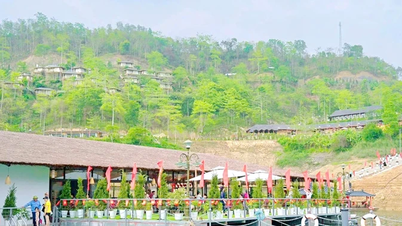

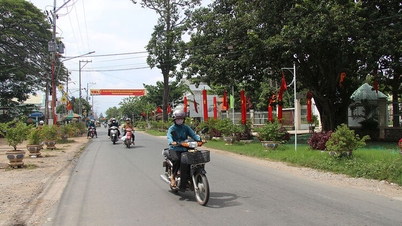







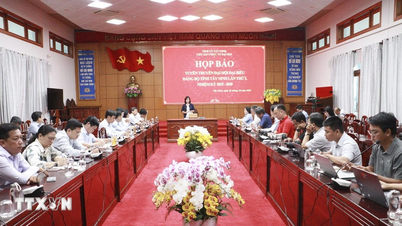
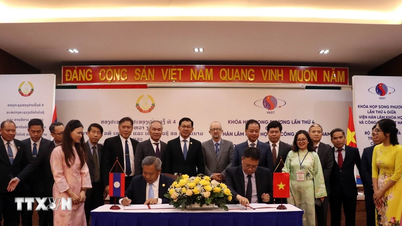
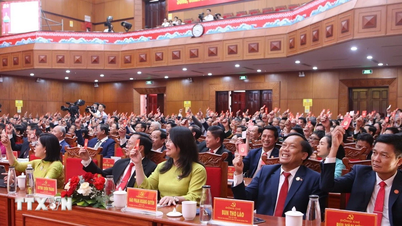
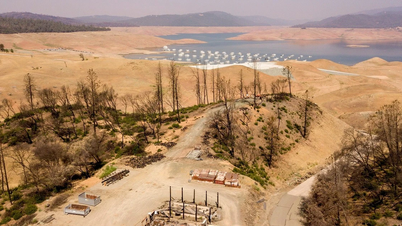

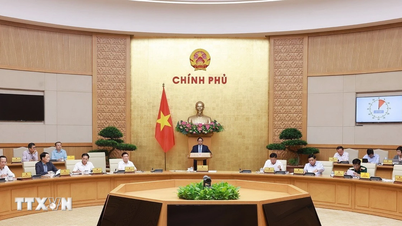









































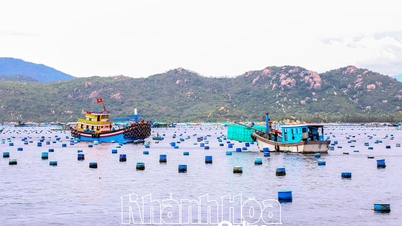


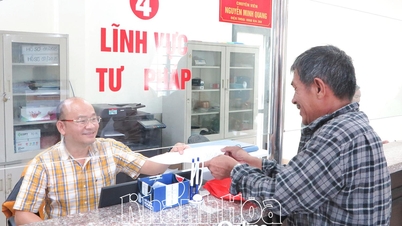
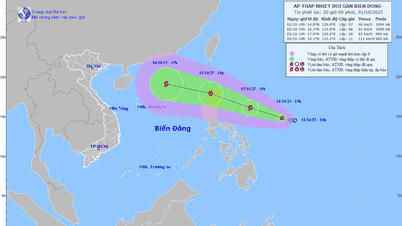

















Comment (0)